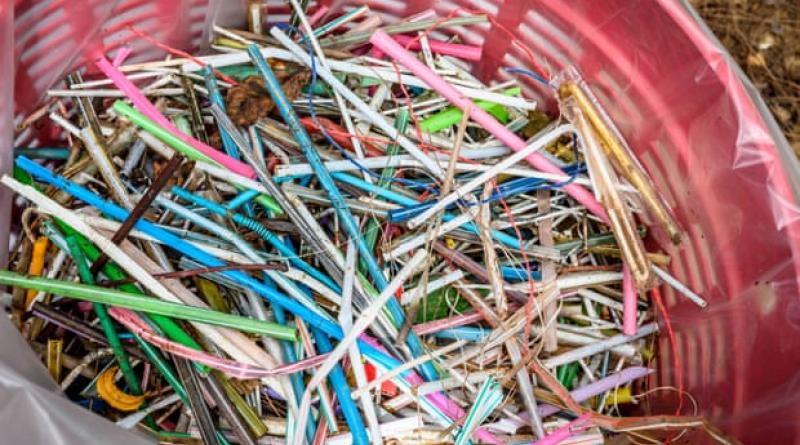Queensland moves to ban single-use plastic straws and plates in bid to save marine life.

Plan to stamp out ‘lethal’ plastic, which gets stuck in airways of wildlife and pollutes waterways, follows South Australia’s proposal.
The Queensland government will move to ban plastic straws, cutlery, stirrers and plates in a bid to stem the destructive effects of plastic on marine life and waterways.
The government introduced legislation on Wednesday that would ban the single-use items, making Queensland the second state after South Australia to put such a proposal before parliament.
If passed, the earliest date the ban would commence would be 1 July 2021, to give businesses, schools and other facilities time to plan for the changes.
The laws include exemptions for people with disabilities or medical requirements to allow outlets such as pharmacies, and schools and care facilities to make plastic straws available to people who need them.
The legislation also allows for the ban to be extended to items such as coffee cups, polystyrene cups, takeaway containers and heavyweight plastic bags after public consultation.
Public consultation by the Queensland government in March found 94% of people and businesses surveyed supported banning single-use plastic straws, plates, cutlery and stirrers.
“That’s an overwhelming statement from communities wanting to find a positive solution to reducing plastic waste and protecting our environment,” the state’s environment minister, Leeanne Enoch, said.
Enoch said the start date was flexible, given businesses would need to source new products at a time when they were also managing the economic effects of the coronavirus pandemic.
Other jurisdictions have been considering similar bans. The ACT is expected to introduce its own bill this year and New South Wales and Western Australia have completed public consultation.
In response to the introduction of the legislation on Wednesday, WWF Australia ranked Queensland No 1 on a new single-use plastics scorecard comparing policies in Australian states and territories.
The ACT and South Australia both ranked second, with Victoria, Tasmania and the Northern Territory equal last.
“It’s wonderful to see the sunshine state leading the way to phase out some of the most littered plastics on our beautiful beaches,” WWF Australia’s Katinka Day said.
“Plastic items like straws, plates and utensils are often discarded after a single use, ending up in landfill or our oceans for hundreds of years.”
The Australian Marine Conservation Society said Queensland had taken significant steps to address plastic pollution in recent years, first through a ban on single-use bags and then with the introduction of a container deposit scheme.
AMCS’s plastics spokesperson, Shane Cucow, said the proposed new laws were welcome.
“Plastic straws and cutlery are among the most lethal plastics for wildlife like seabirds and turtles,” he said.
“Sharp, highly likely to be contaminated and commonly found in waterways, these plastics can cause serious injuries. They get stuck in airways and cause painful internal injuries and poisoning when eaten.”
The legislation will be considered by a committee before going to parliament.
15 July 2020
The Guardian





